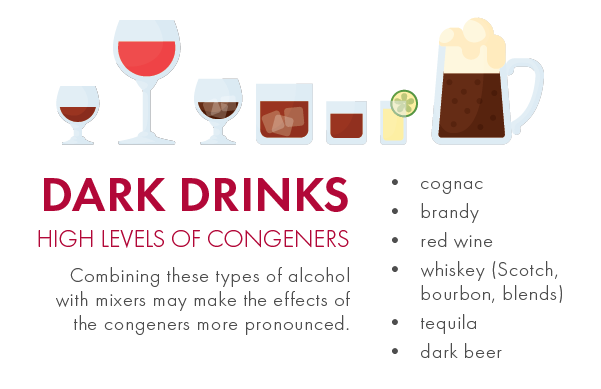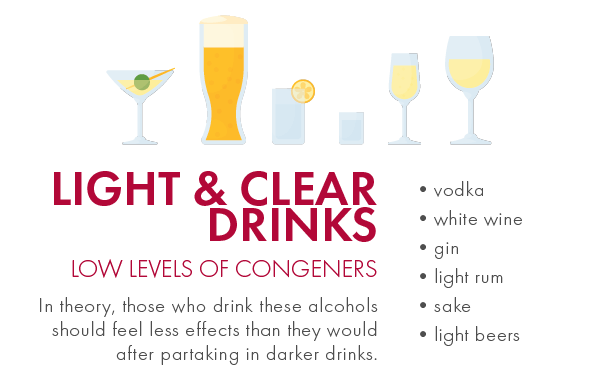During the holidays, you'll likely be indulging...
Most alcoholic beverages contain what’s known as congeners. Created during the fermentation process, congeners are one of the strongest compounds and greatly contribute to the flavor of alcohol. If you’ve never heard the term before, here’s what you should know about how they interact with your body chemistry:
What are Congeners?
Alcohol contains hundreds of different chemical compounds that gives these beverages their taste and scent. However, these compounds are so strong they can be detected in the bloodstream hours later, as well. One key component is ethanol, a chemical that is made during the distillation and fermentation process.
These same processes also create toxic byproducts called congeners, which include chemicals such as:
- Methanol: Breaks down into formaldehyde and formic acid; those who produce larger amounts of methanol may feel worse after drinking. The greatest quantities are found in dark liquors.
- Furfuryl: Stops yeast from metabolizing.
- Tannins: Found in wine and contain antioxidants.
- Fusel oil: Produced during the distillation process for alcoholic spirits.
- Acetaldehyde: A toxic substance that is a byproduct of the breakdown of ethanol.

Dark Drinks
Dark liquors, like cognac, brandy, red wine, dark whiskey and bourbon typically contain high levels of congeners. These darker liquors may have worse after-effects than lighter- or clear-colored alcoholic beverages. An exception to this is tequila, which also has high levels of congeners. Combining these types of alcohol with mixers may make the effects of the congeners more pronounced.

Light & Clear Drinks
Clear drinks, including vodka, white wine, gin, light rum, sake and light beers, often have low levels of congeners. This means that in theory, those who drink these alcohols should feel less effects than they would after partaking in darker drinks.
While understanding the science behind the chemical compounds in alcohol can give you a clearer picture of why some types of alcoholic beverages are more likely to make you feel worse than others, I can’t condone using the science of congeners to determine how you should drink. Excessive alcohol consumption comes with several health risks, including an increased risk for liver disease, heart disease, depression, stroke and certain forms of cancer. My view as a registered dietitian is that when it comes to drinking, regardless of congeners, moderation is best.

Step Up to Healthy Living with Health Beat
At Orlando Health, we want to help you live a healthy, balanced life. Sign up today to have Health Beat delivered to your inbox on a bimonthly schedule.
Sign Up










